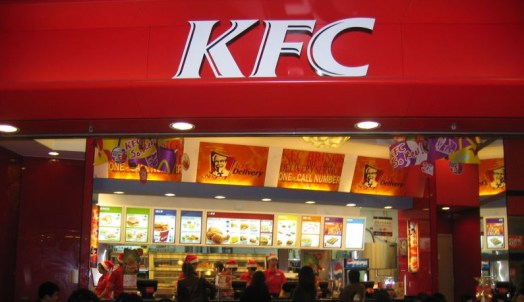S.N.A.F.U. css1971 Wed, 08/15/2018 - 15:21
Permalink
.
None of the E shit matters compared to the carb content.
Absolutely.
As I read the article title I was looking forward to seeing the typical store-supplied diet eviscerated as it should be. Instead TDB ignores all the real problems (and essentially promotes those problems) while bringing up a few secondary issues, a whole lot of extremely minor issues, and several total non-issues.
SODIUM NITRATE/NITRITE (Multiple types of cancer.) Read ingredient lists to avoid.
This appears to be wrong. There was apparently one shitty study that indicated a link, and no one's been able to reproduce it.
Furthermore, though you won't find it on the ingredients list, vegetables like celery contain sodium nitrate, and when sodium nitrate reacts with saliva it converts to sodium nitrite. So, yeah, TDB is claiming that celery causes cancer, but he doesn't even know it because he's so nutritionally ignorant.
Carrageenan (cancer-causing)
This was based on another single-instance junk study. I've actually looked into this one in the past. The crazy bitch that did this study didn't even use carrageenan in the -flicking-g study. She used something that can only be produced from carrageenan under extreme conditions (higher temperatures than any food frying temperature, and highly acidic). There's neither evidence nor any mechanisms by which carrageenan can convert to the substance she tested in the human body, nor during cooking, nor any evidence that carrageenan itself has the effects her study suggested.
"ACRYLAMIDE (Carcinogen.)"
I expected this article to talk about real hazards - such as sugar (especially fructose) and starches. You could eat french fries every day of your life and the chances of getting cancer from the acrylamide are likely on the order of getting killed by a bolt of lightning. On the other hand, the chances of the starch in those french fries contributing to you ending up with diabetes, heart disease, cancer, metabolic disorder, and/or fatty liver disease is rather high (same order of magnitude as 50%). Sugars and starches also contribute to depression, leaky gut syndrome, Alzeihmers, tooth decay, chronic fatigue, weight (fat) gain, and about a zillion other conditions.
I also expected this article to talk about stuff like "grass-fed beef" which is effectively a lie. Many meat producers feel free to use the label "grass-fed" as long as the cattle has eaten grass anytime in their whole life, but that meaning is bullshit because it doesn't control the nutritional value of the meat/fat produced. "Grain finished" meat (which hardly anyone advertises their meat as being anymore even though most meat is) is deficient in vitamin K2, and that leads to mass K2 deficiencies in western world humans which is a major contributor to artery calcification (arteriosclerosis), kidney calcification (kidney stones), possibly oral calcification (tartar), and calcification of other bodily tissues (and I believe joint issues as well). "Grain finished" meat is also much lower in omega 3 fatty acids (which most people are deficient in) and much higher in omega 6 fatty acids (which most people are getting FAR too much of).
Do I even need to explain to anyone here why they should be staying the hell away from the vegetable oils? (Polyunsaturated fatty acids are unstable. They oxidize readily, even more so if you cook with them [basic chemistry: higher temperature = more reactions], and they then go on to create oxidative stress in your body when you eat them. Monounsaturated is more stable. Saturated is the most stable. Animal fats, especially good ones, are high in saturated and monounsaturated fats and low in poly-unsaturated fats. There are a few plants [like coconuts] that also yield oil very high in saturated fats. Another issue with vegetable oils is that they are mostly omega 6 fatty acids, which is a pro-inflammatory that most people get too much of.)
If the author is so concerned about cancer, besides sugars/starches (which contributes to cancer via both inflammation and metabolic syndrome routes), maybe he would bring up how most people are magnesium deficient, and magnesium deficiency both increases DNA copy errors AND degrades the ability to correct those errors when they happen, greatly increasing cancer risks. Some mandatory food labeling for vital nutrients like magnesium would help shoppers determine that they are falling far short of what they need. (Admittedly only a small fraction would actually benefit from that though - most people don't really seem to care about their health enough to even know HOW to eat right, much less do so.)
And if the article is going to call stores a "deadly food jungle", maybe he could point out that one of the most nutritionally hazardous food groups is seeds/nuts/legumes because they contain phytic acid which leaches minerals from your gut - you can cut the amount of minerals you get from a meal by 50% by ADDING some of these foods to the meal. Furthermore these foods can contain other substances (lectins, amylase inhibitors, tannins, etc.) which are there to attack whoever eats these foods. (These chemicals are defense mechanisms that plants have evolved to discourage animals from eating their babies, and in some cases to protect them as they travel through an animal's digestive tract.)



